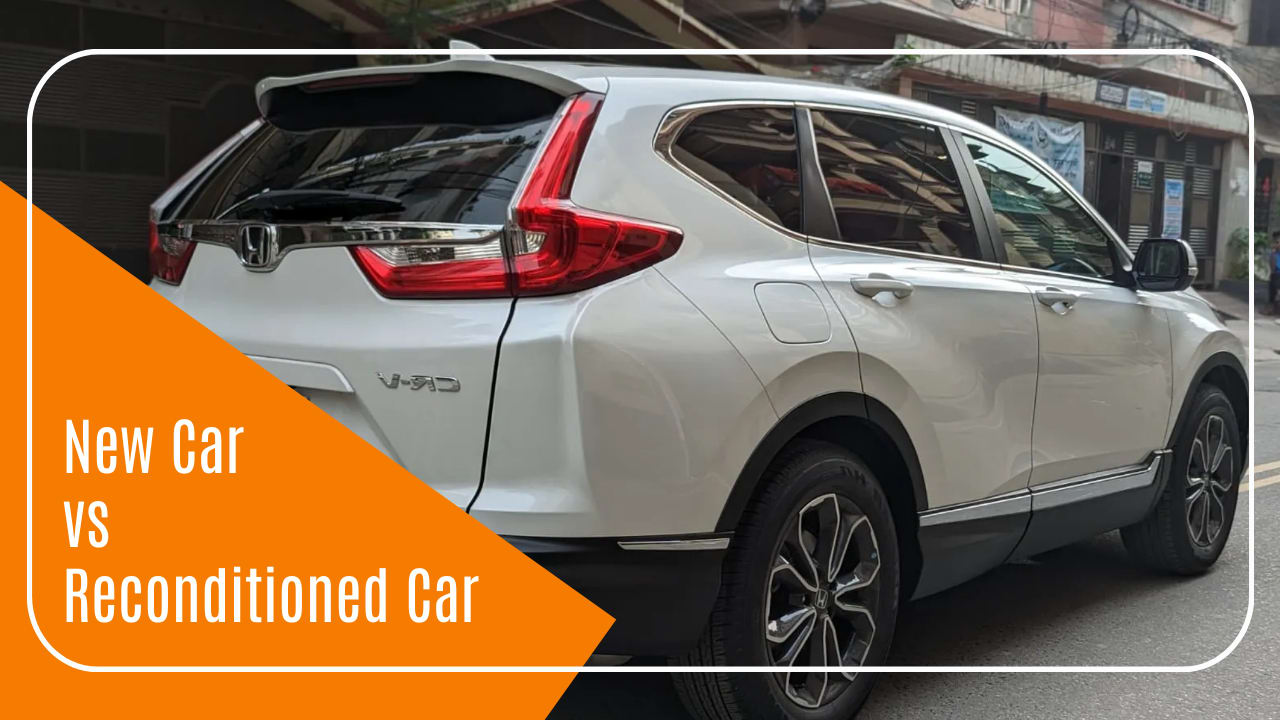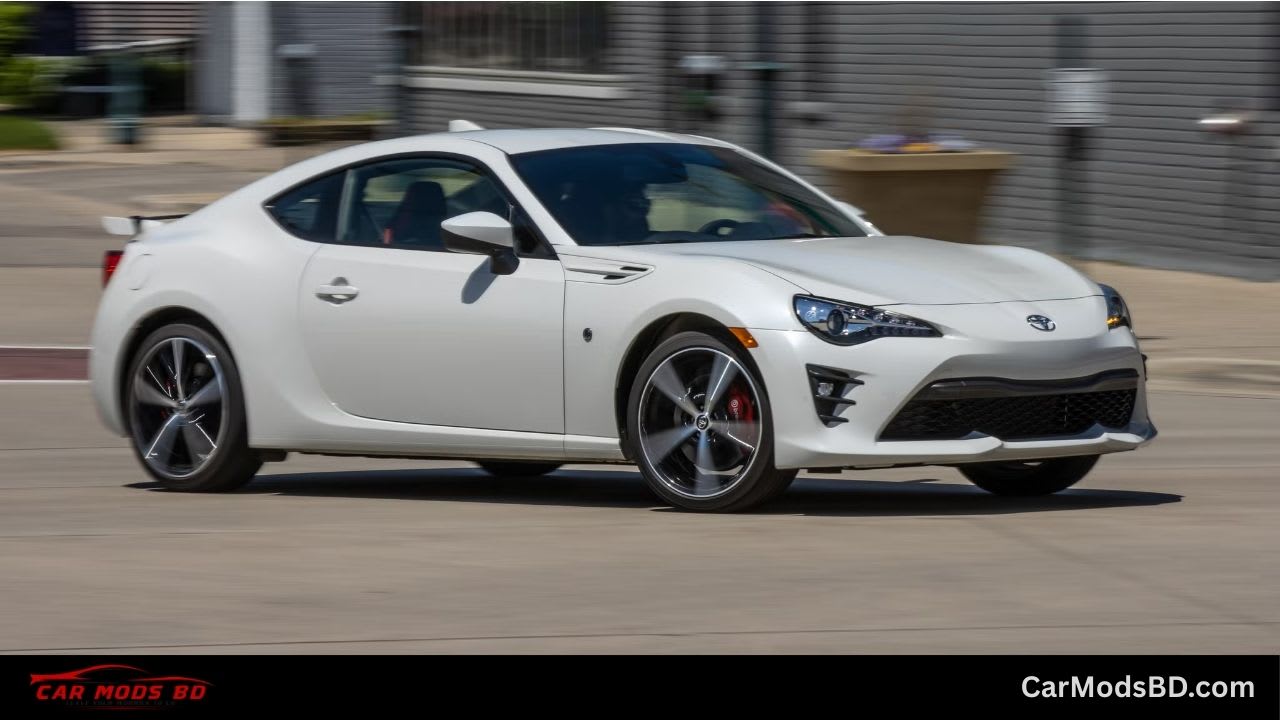New Car vs Reconditioned Car: Which One Should You Buy in 2025?

As a car enthusiast in Bangladesh, I’ve always been fascinated by the debate between buying a new car and a reconditioned car. In 2025, the decision has become even more nuanced, with evolving market trends, changing consumer preferences, and economic factors playing a significant role. If you’re torn between these two options, let’s break down the pros, cons, and key considerations to help you make an informed choice.
1. Price: The Biggest Factor
When it comes to affordability, reconditioned cars have always been the go-to option for Bangladeshi buyers. On average, a reconditioned car costs between BDT 20-30 lakhs, while a brand-new car can range from BDT 25 lakhs to 1 crore, depending on the model and brand.
- Reconditioned Cars: These are significantly cheaper because they’ve already undergone depreciation. For example, a reconditioned Toyota Corolla can cost around BDT 27-32 lakhs, while a new one starts at BDT 35 lakhs.
- New Cars: While more expensive, new cars come with warranties, modern features, and the peace of mind of being the first owner.
2. Reliability and Warranty
One of the biggest advantages of buying a new car is the warranty and reliability. Most new cars come with a manufacturer’s warranty covering major components for up to 5 years or 100,000 km.
- Reconditioned Cars: These may not come with warranties unless they’re certified by the dealer. Even then, the warranty period is usually shorter, and you might face unexpected repair costs. Again, you must check the auction sheet before making your final purchase decision while buying a reconditioned car.
- New Cars: With no prior usage, new cars are less likely to have mechanical issues in the short term.
3. Features and Technology
In 2025, new cars are packed with advanced features like hybrid engines, smart infotainment systems, and advanced safety features such as lane-keeping assist and adaptive cruise control.
- Reconditioned Cars: These often come with outdated technology. For instance, a reconditioned Honda City from 2020 might lack the latest connectivity features found in the 2025 model.
- New Cars: If you’re a tech enthusiast, a new car will offer the latest innovations and better fuel efficiency.
4. Depreciation and Resale Value
Cars depreciate the most in their first few years. A new car can lose up to 20-30% of its value in the first year, while a reconditioned car has already absorbed this depreciation.
- Reconditioned Cars: These hold their value better over time, making them a smarter choice if you plan to sell the car later.
- New Cars: While they depreciate faster, new cars from popular brands like Toyota and Honda still have strong resale value in Bangladesh.
5. Maintenance and Running Costs
Maintenance is a crucial factor to consider.
- Reconditioned Cars: These may require more frequent repairs, especially if they’re older or have high mileage. For example, a reconditioned Mitsubishi Pajero might need regular servicing for its aging components.
- New Cars: With lower maintenance needs and covered warranties, new cars are more cost-effective in the long run.
6. Fuel Efficiency and Environmental Impact
In 2025, hybrid and electric vehicles (EVs) are gaining popularity in Bangladesh due to their fuel efficiency and lower environmental impact.
- Reconditioned Cars: Most reconditioned cars are gasoline-powered and less fuel-efficient compared to modern hybrids.
- New Cars: Brands like Toyota and Honda are offering hybrid models that can run 15-25 km/liter, making them a greener and more economical choice.
7. Legal and Regulatory Compliance
New cars in Bangladesh don’t require a fitness certificate for the first 5 years, while reconditioned cars may need immediate certification and compliance checks.
8. Personal Preferences and Status Symbol
Let’s be honest—owning a new car is a status symbol. The shiny exterior, untouched interior, and the pride of being the first owner are hard to beat.
- Reconditioned Cars: While they’re more affordable, they may not carry the same prestige as a new car.
9. Financing Options
Financing a new car is often easier, with banks and dealerships offering attractive loan packages. Reconditioned cars may have limited financing options, and interest rates can be higher.
10. Market Trends in 2025
In 2025, the demand for new cars is rising in Bangladesh, driven by younger buyers who value modern features and warranties. However, reconditioned cars still dominate the market, especially among budget-conscious buyers.
Final Thoughts
So, which one should you buy? It ultimately depends on your budget, priorities, and long-term plans.
- Choose a New Car if:
- You want the latest features and technology.
- You value reliability and warranty coverage.
- You’re willing to invest more upfront for long-term benefits.
Choose a Reconditioned Car if:
- You’re on a tight budget.
- You’re okay with older models and potential maintenance costs.
- You want to avoid the steep depreciation of a new car.
In 2025, both options have their merits. Whether you go for a new car or a reconditioned car, make sure to do thorough research, inspect the vehicle, and choose a reputable dealer. Happy driving!



